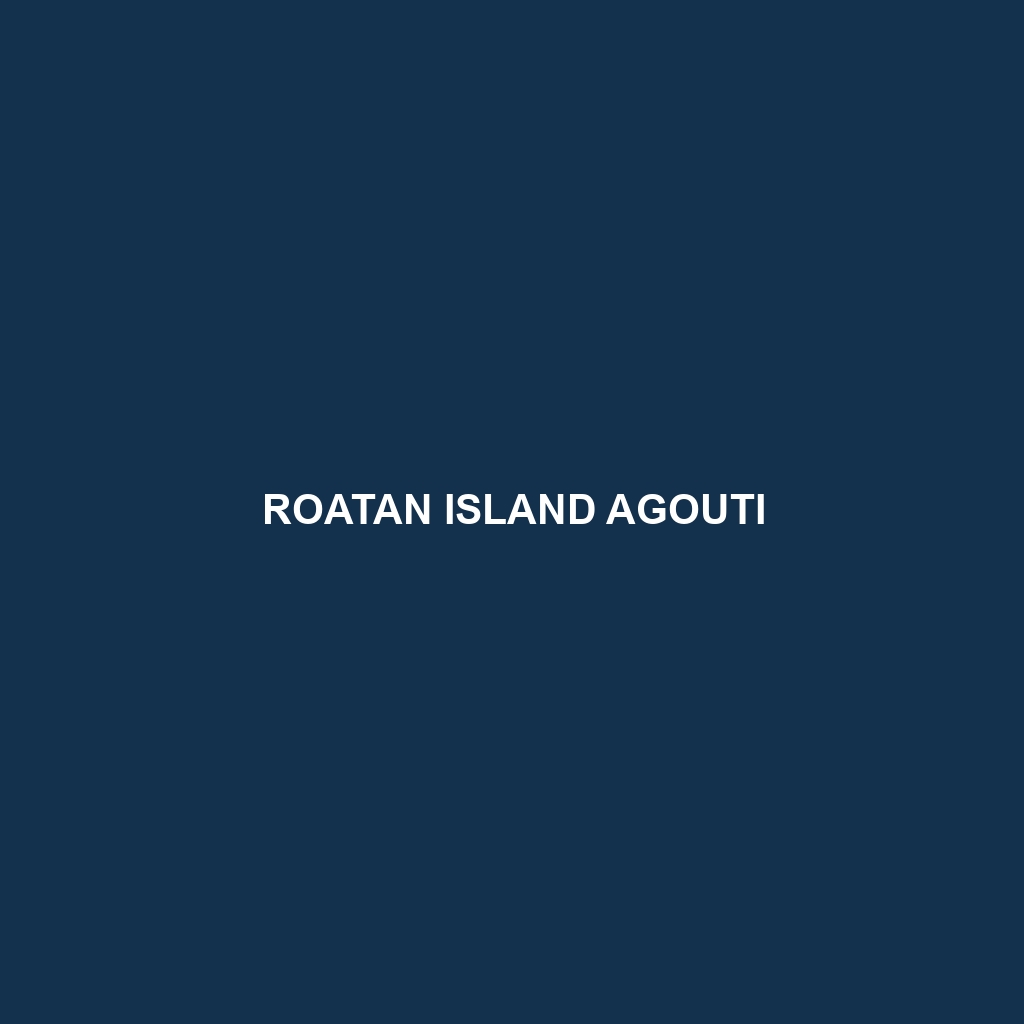Roatan Island Agouti – A Unique Rodent Species
Common Name: Roatan Island Agouti
Scientific Name: Dasyprocta roatanensis
Habitat
The Roatan Island Agouti is primarily found in the tropical forests of Roatan Island, located off the northern coast of Honduras. This species thrives in dense underbrush and woodland areas, making its home in both primary and secondary forests. These rodents are often spotted near water sources, where they can find ample food and shelter from predators.
Physical Characteristics
The Roatan Island Agouti is characterized by its medium size, typically measuring between 50 to 70 cm in length. Their fur ranges from a reddish to brownish hue with lighter underbellies, providing excellent camouflage among the forest floor. They possess a robust body, long legs, and distinctive, large ears which help in detecting sounds from predators. Their small, rounded tails are often hidden in their fur, making them easily identifiable.
Behavior
Roatan Island Agoutis are primarily crepuscular, with peak activity during dawn and dusk. They are social animals that often live in small family groups and exhibit behaviors such as grooming and playing with one another. Known for their curious nature, these agoutis will often explore their surroundings, which aids in natural seed dispersal, a behavior that attracts significant ecological interest.
Diet
The diet of the Roatan Island Agouti consists mainly of fruits, nuts, seeds, and tubers. They are particularly fond of the fruit from local trees such as the cocoa and mango. Their feeding habits are essential for maintaining the health of their ecosystem, as they play a vital role in seed dispersal, helping to propagate various tree species within their habitat.
Reproduction
Roatan Island Agoutis breed throughout the year, with peaks during the rainy season. After a gestation period of approximately 90 days, females give birth to a litter of one to three young. The offspring are born fully furred and with their eyes open, making them capable of foraging for food soon after birth, highlighting the species’ adaptability and survival skills.
Conservation Status
The Roatan Island Agouti is currently classified as vulnerable due to habitat loss from deforestation, hunting pressure, and the impacts of tourism on their natural environments. Conservation efforts are crucial to protect this unique species and preserve their habitat for future generations.
Interesting Facts
One fascinating fact about the Roatan Island Agouti is its remarkable ability to jump up to three feet high, which aids in escaping predators. Additionally, they are known to communicate with a variety of vocalizations, from chirps to whistles, to interact with members of their group.
Role in Ecosystem
As a key herbivore in the tropical forests of Roatan, the Roatan Island Agouti plays a critical role in its ecosystem by aiding in seed dispersal. This behavior not only helps maintain plant diversity but also supports other species that rely on the flora for shelter and food. By fulfilling this role, the Agouti contributes significantly to the ecological balance of its habitat.
